By Dr. Jing Fan, M.D.(China), Ph.D., L.Ac.
Endocrine disorders are very common issues for women, often closely related to stress, diet, work, and rest. It is believed that hyperinsulinemia is related to increased androgen levels and obesity, and type 2 diabetes. In turn, obesity can increase insulin levels, which exacerbates polycystic ovarian syndrome (PCOS). Several other causes can manipulate the endocrine system to create problems with female reproduction, including obesity, thyroid disorders, adrenal hyperplasia, and tumors in the pituitary gland. It can also cause acne, irregular menstruation, insomnia, emotional instability, infertility, etc.
According to traditional Chinese medicine (TCM), endocrine disorders are primarily manifestations of Yin deficiency (caused by stagnation of Qi and blood, which blocks the body's channels); this issue is very common in women. Therefore, for its treatment, we must start with regulating human hormones to make the body's blood flow unblocked, thereby promoting blood circulation throughout the body. According to the principles of syndrome pattern differentiation and treatment in traditional Chinese medicine, for patients with the heat excess pattern, we should use treatment for nourishing Yin; for patients with the deficiency pattern, we should pay attention to the treatment of tonifying blood and Qi and supporting the kidney.
The traditional Chinese herbal medicines that regulate the endocrine system include Bai Shao, He Huan Pi, Chai Hu, Yu Jin, Suan Zao Ren, and Dan Shen. We will introduce them in detail below:
- Bai Shao (Paeonia lactiflora Alba Radix)
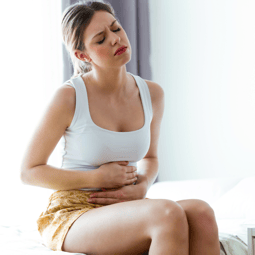
Bai Shao is a good herb for women. Not only can it nourish yin and blood, but it can also help regulate menstruation and relieve pain. It also has a specific protective effect on the liver. It can help chest tightness, abdominal pain, night sweats, and hot flashes caused by endocrine disorders. It also can improve women's irregular menstruation, dysmenorrhea, and metrorrhagia. However, it is not suitable for patients with gallstones.
- He Huan Pi (Albizia julibrissin Cortex)
He Huan Pi can not only soothe the liver Qi but also detoxify and invigorate blood. According to TCM, it has a positive effect on activating blood, dredging the collaterals, improving depression, and reducing swelling and toxin. It is also suitable for treating restlessness, insomnia, depression, internal and external injuries. Therefore, it is effective for liver Qi stagnation-induced endocrine disorders. When using it, one can take 10-15 grams of decoction orally or use the appropriate quantity of powder for topical use.
- Chai Hu (Bupleurum chinense Radix)
The primary function of Chai Hu is to soothe the liver Qi to play a very targeted treatment effect on endocrine problems caused by liver Qi stagnation. For women with irregular menstruation, Chuan Xiong (Ligusticum chuanxiong Rhizoma), Bai Shao, and Xiang Fu (Cyperus rotundus Rhizoma) are often used in combination. These herbs have a positive effect on blood circulation and menstrual relief. For breast tenderness and loss of appetite caused by liver Qi stagnation, Bai Shao and Bai Zhu (Atractylodes macrocephala Rhizoma) are often used in combination..png?width=273&name=Untitled%20design%20(3).png)
- Yu Jin (Curcuma aromatica Rhizoma)
Yu Jin is a commonly used herb in Chinese herbal medicine, especially for diseases caused by Qi stagnation. For endocrine disorders, it can soothe the liver Qi, promote blood circulation, dispel blood stasis, and dredge the collaterals, according to TCM. Therefore, problems like irregular menstruation and dysmenorrhea can be treated with this herb. In the case of liver Qi stagnation, it can be combined with Chai Hu and Xiang Fu. In the case of liver heat, it can be combined with herbs such as Zhi Zi (Gardenia jasminoides Fructus) and Chuan Xiong.
- Suan Zao Ren (Ziziphus Spinosa Semen)
The recommended primary function of Suan Zao Ren is sedation. Many Chinese patent herbal medicines for insomnia and restlessness contain the ingredients of Suan Zao Ren. It goes through the channels of the liver, gallbladder, and heart, and it has a soothing effect on symptoms such as upset, insomnia, heart palpitations, night sweats, and so on. The taste of this herb is somewhat sour, so it can also restrain the Yang in the liver and clear the liver fire. It is generally used with herbs such as Bai Shao and Mai Dong.
- Dan Shen (Salvia miltiorrhiza Radix)
Dan Shen is a commonly used traditional Chinese herbal medicine. It is generally used together with Chuan Xiong and Dang Gui (Angelica Sinensis Radicis). It positively promotes blood circulation, promotes Qi, dispels blood stasis, regulates menstruation, and relieves pain. Therefore, it works especially well for women’s endocrine problems, such as dysmenorrhea, dark blood clot, irregular menstruation, etc. Dan Shen can dissipate blood stasis and generate new blood, according to TCM records. It is a perfect Chinese herbal medicine for regulating the endocrine system for women.
.png?width=289&name=Untitled%20design%20(2).png)
Summary: Many Chinese herbal medicines can regulate the endocrine system, not limited to the above. However, herbal medicines also have some limitations. It cannot cover all issues. Therefore, we should always pay attention to lifestyle adjustment and proper exercise, which can also help maintain an optimistic mood conducive to endocrine healthy.
In addition, TCM treatment of endocrine disorders pays great attention to mediating emotions. From the perspective of traditional Chinese medicine, “Qing Zhi” (emotions) also significantly impact the endocrine system. The so-called "Qing Zhi" actually refers to people’s mental and psychological state. The great Chinese classic text, Huang Di Nei Jing, repeatedly discussed the damage to human organs caused by bad mental and psychological state, saying that "extreme anger hurts the liver," "extreme happy hurts the heart," "extreme worry hurts the spleen," "extreme sorrows hurt the lungs," and " extreme fear hurts the kidneys." Emotions directly affect the secretion of hormones such as estrogen and progesterone. Therefore, it is necessary to actively regulate emotions and maintain a stable mood to improve the skin condition before and after the menstrual periods.

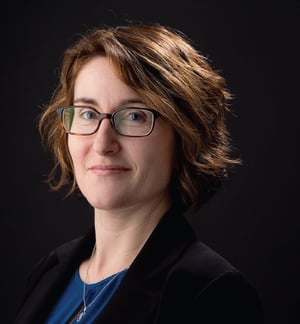 turned out, half of the program was devoted to learning Shiatsu (acupressure) which uses the same meridian system as acupuncture. I had already been studying Eastern philosophy and fell completely in love with this profound approach to health. It was also at this time that I injured my back during a performance and on the advice of a friend, found myself in Chinatown getting acupuncture. Needless to say, my back pain resolved, and I had discovered what would become a lifelong passion.
turned out, half of the program was devoted to learning Shiatsu (acupressure) which uses the same meridian system as acupuncture. I had already been studying Eastern philosophy and fell completely in love with this profound approach to health. It was also at this time that I injured my back during a performance and on the advice of a friend, found myself in Chinatown getting acupuncture. Needless to say, my back pain resolved, and I had discovered what would become a lifelong passion.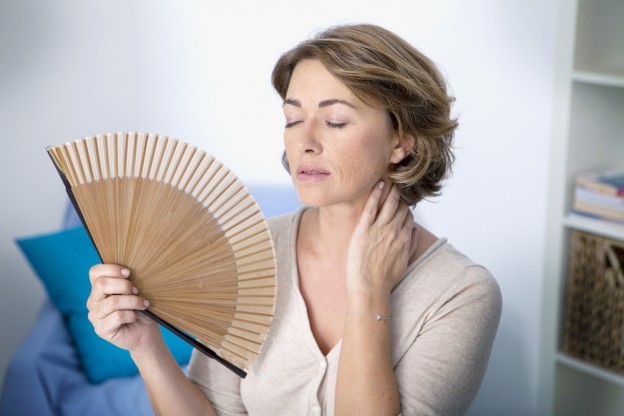
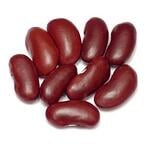

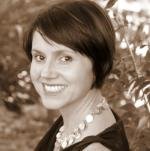 Kirsten Hurder-Karchmer was teaching linguistics at the University of Texas when she began having some serious auto-immune health issues. After seeing several medical doctors and having surgery she turned to AOMA faculty member Jamie Wu for acupuncture and Traditional Chinese Medicine treatments. Amazed by the results, Kirsten started looking into acupuncture as a career choice. She recalls, “I was already a teacher and thought that to be a good doctor, it required a great deal of patient education, so it seemed like a good match for me.”
Kirsten Hurder-Karchmer was teaching linguistics at the University of Texas when she began having some serious auto-immune health issues. After seeing several medical doctors and having surgery she turned to AOMA faculty member Jamie Wu for acupuncture and Traditional Chinese Medicine treatments. Amazed by the results, Kirsten started looking into acupuncture as a career choice. She recalls, “I was already a teacher and thought that to be a good doctor, it required a great deal of patient education, so it seemed like a good match for me.”
